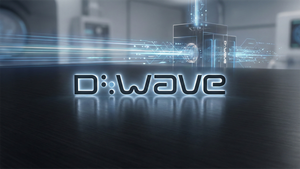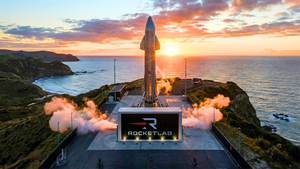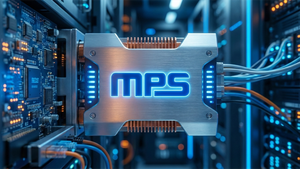
STOCKHOLM, Sweden – October 7, 2025 – The Royal Swedish Academy of Sciences has today awarded the 2025 Nobel Prize in Physics to John Clarke, Michel H. Devoret, and John M. Martinis for their pioneering work in macroscopic quantum mechanical tunneling and energy quantization in electric circuits. This monumental recognition celebrates breakthroughs from the mid-1980s that demonstrated the ability to engineer and harness quantum phenomena in systems far larger than previously thought possible, laying a foundational cornerstone for the burgeoning field of quantum technology. The immediate implications are profound, promising to redefine the landscape of computing, communication, and precision measurement.
This landmark award signifies a critical turning point, validating decades of intricate research that bridged the theoretical "weirdness" of quantum mechanics with tangible, real-world applications. The laureates' ability to manifest quantum behaviors in superconducting electrical circuits has not only deepened our understanding of the universe but has also directly fueled the development of the next generation of technological marvels, from ultra-powerful quantum computers to hyper-efficient digital electronics.
A Decades-Long Journey to the Quantum Frontier
The core of the laureates' Nobel-winning achievement lies in their groundbreaking demonstration of quantum tunneling and quantized energy levels within superconducting electrical circuits, specifically Josephson junctions. Prior to their work, quantum tunneling – where particles pass through seemingly impenetrable energy barriers – was primarily observed and theorized at the subatomic level. Clarke, Devoret, and Martinis, however, proved that electrons could tunnel across these barriers in macroscopic circuits, behaving collectively as a single, large-scale quantum entity. This revelation shattered previous assumptions and opened a new frontier for quantum engineering.
Their research, largely conducted in the mid-1980s, provided the crucial theoretical and experimental framework that would eventually underpin much of modern quantum technology. The noise-control techniques they developed, coupled with the understanding that a Josephson junction can act as a macroscopic multilevel quantum system, directly led to the conceptualization and development of superconducting quantum bits, or qubits. These qubits are the fundamental building blocks of many nascent commercial quantum computers, promising unprecedented computational power for tackling complex problems currently intractable for classical machines. Indeed, Michel Devoret has since become a chief scientist for Google's (NASDAQ: GOOGL) quantum computing efforts, a testament to the practical impact of his foundational research. The principles established by their work are not confined to exotic quantum machines; they are fundamental to modern electronics. Quantum tunneling effects are essential for the operation of devices like tunnel diodes, flash memory, and advanced transistors (e.g., TFETs) that enable faster current switching, lower power consumption, and high-efficiency data storage in our everyday digital devices, including smartphones. As John Clarke himself noted, "one of the underlying reasons that cellphones work is because of all this work." The initial reaction from the scientific community and industry has been one of immense validation and renewed excitement, recognizing this award as a powerful endorsement of quantum mechanics' practical utility and its transformative potential across numerous sectors.
The Quantum Economy: Winners and Losers
The awarding of the Nobel Prize for quantum tunneling advancements is set to send ripples through the tech sector, creating clear winners and posing significant challenges for established players. Companies deeply invested in quantum computing, sensing, and advanced materials stand to gain immensely, while those reliant solely on classical computing paradigms may face pressure to adapt or risk obsolescence.
At the forefront of the beneficiaries are companies like Google (NASDAQ: GOOGL) and IBM (NYSE: IBM), both major players in superconducting quantum computing, a field directly enabled by the laureates' work. Google, already leveraging Michel Devoret's expertise, will see its quantum research and development efforts further legitimized and potentially accelerated. IBM's extensive quantum hardware and software platforms, including its Qiskit framework, are built upon the very principles recognized by this Nobel. These companies could see increased investment, talent attraction, and accelerated commercialization of quantum solutions. Similarly, Rigetti Computing (NASDAQ: RGTI) and IonQ (NYSE: IONQ), specializing in quantum hardware and cloud services, are poised to capitalize on the heightened awareness and validation of quantum technology, potentially attracting more enterprise customers and government contracts. Their ability to deliver practical quantum solutions will be crucial.
The semiconductor industry, while already utilizing quantum tunneling in advanced transistors, will face a new era of innovation and competition. Companies like Intel (NASDAQ: INTC) and NVIDIA (NASDAQ: NVDA), which are exploring quantum computing architectures alongside their classical chip development, will need to intensify their efforts. The advancements in understanding and controlling quantum tunneling dynamics, particularly at the sub-nanometer scale, will drive the next generation of ultra-efficient and powerful classical and quantum-inspired chips. However, companies heavily invested in traditional silicon fabrication may need to pivot substantial R&D resources towards quantum-resistant technologies or new quantum material science to remain competitive. Furthermore, the burgeoning field of quantum sensing, which benefits from the ultra-sensitive measurement capabilities enabled by these tunneling discoveries, will open new markets for companies like Honeywell (NASDAQ: HON) and Lockheed Martin (NYSE: LMT), which are exploring quantum applications in defense, aerospace, and industrial sensing. Conversely, companies that fail to integrate quantum strategies into their long-term plans, or those whose core business models are susceptible to quantum disruption (e.g., in cryptography), may face significant headwinds.
A Quantum Leap for Global Technology and Policy
The Nobel Prize in Physics for advancements in quantum tunneling represents far more than just an academic accolade; it is a powerful catalyst for a global technological renaissance, signaling a definitive shift in how industries approach innovation, security, and fundamental research. This recognition places quantum phenomena at the forefront of the 21st century's technological agenda, fitting perfectly into the broader industry trends of hyper-miniaturization, ultra-fast computation, and unhackable communication.
The ripple effects of this Nobel are expected to be profound and far-reaching. Competitors across various sectors will likely intensify their research and development investments in quantum-related fields, leading to a new "quantum race" for patents and market dominance. Companies historically reliant on classical physics may be compelled to strategically reposition themselves, potentially through acquisitions of quantum startups or by forming dedicated quantum research divisions. This could lead to disruptive innovation, challenging incumbents in high-performance computing, secure communication, and sensor technology. On the partnership front, a surge in collaborations between academic institutions, government laboratories, and private industry is anticipated. Universities with leading quantum research programs will become even more attractive hubs for funding and talent, fostering new consortia aimed at scaling quantum technologies and developing shared infrastructure. The enhanced profile of quantum tunneling will also undoubtedly spur the creation of specialized startups, attracting venture capital eager to capitalize on the next wave of technological innovation. Supply chains will also feel the impact, with increased demand for novel materials with unique quantum properties – such as advanced superconductors and topological insulators – pushing innovation in precision manufacturing and potentially shifting global sourcing strategies for critical components.
From a regulatory and policy standpoint, this Nobel Prize will undoubtedly influence governmental priorities worldwide. Expect increased government funding for basic and applied research in quantum science and technology, viewed as a critical area for national security, economic competitiveness, and technological leadership. Countries may launch or expand national quantum initiatives, similar to existing efforts in quantum computing, with specific programs aimed at quantum tunneling applications. As quantum tunneling enables potentially transformative and sensitive technologies, particularly in areas like quantum cryptography and advanced computing, governments might implement stricter export controls to prevent technology proliferation. Intellectual property laws and patenting strategies will also become crucial battlegrounds. While quantum tunneling itself doesn't present immediate ethical concerns, its applications in areas like quantum computing could raise broader questions regarding data privacy, security, and potential new forms of surveillance, intensifying policy discussions. Historically, scientific breakthroughs recognized by Nobel Prizes have consistently reshaped industries and societies. The invention of the transistor (1956 Nobel), the development of the laser (1964 Nobel), and the discovery of X-rays (1901 Nobel) all served as powerful signals, validating scientific importance and practical potential, thereby catalyzing massive investment, talent attraction, and the creation of entirely new industries. This Nobel for quantum tunneling is poised to follow a similar trajectory, embedding its principles deeper into the technological fabric of the 21st century and driving the next generation of innovation.
The Quantum Horizon: What Comes Next
The recognition of quantum tunneling's foundational role through the Nobel Prize marks not an end, but a profound acceleration in the journey towards a fully realized quantum future. In the short term, we can expect a significant uptick in research and development across various quantum technologies. The immediate focus will be on refining existing quantum computing architectures, enhancing the stability and coherence of qubits, and developing more robust quantum algorithms. Companies in the quantum space will likely double down on efforts to transition from experimental prototypes to commercially viable products, with an emphasis on cloud-based quantum computing services and specialized quantum sensors.
Looking further ahead, the long-term possibilities are even more transformative. Advancements in understanding electron tunneling dynamics, such as the recent discovery of "under-the-barrier recollision," could lead to unprecedented control over electron behavior, significantly increasing the efficiency of advanced semiconductors and ultrafast lasers. This could unlock a new generation of microprocessors that defy classical scaling limits. The burgeoning field of quantum biology, where quantum tunneling is implicated in processes like DNA mutations and enzyme catalysis, could revolutionize medicine, leading to novel drug discovery methods and a deeper understanding of biological mechanisms. Furthermore, precise atom transfer via optical tweezers, as recently demonstrated, offers a novel method for developing new quantum platforms for various technologies. Market opportunities will emerge not only in quantum computing and cryptography but also in areas like quantum-enhanced materials science, ultra-precise navigation systems, and medical diagnostics. However, significant challenges remain, including the need for fault-tolerant quantum computers, the development of scalable manufacturing processes for quantum devices, and the cultivation of a highly specialized workforce. Strategic pivots will be required for traditional tech giants, focusing on hybrid classical-quantum solutions and investing heavily in quantum talent acquisition and infrastructure. Potential scenarios range from a gradual integration of quantum capabilities into existing tech stacks to a more radical disruption where quantum computing fundamentally redefines entire industries.
A New Era of Innovation: Quantum's Lasting Impact
The 2025 Nobel Prize in Physics for quantum tunneling is a powerful affirmation of quantum mechanics not just as a theoretical curiosity, but as an indispensable tool for engineering the future. The key takeaway is clear: quantum phenomena, once relegated to the realm of subatomic particles, are now being harnessed at macroscopic scales, providing the bedrock for a new technological paradigm. This award validates decades of foundational research and shines a spotlight on the immense potential of quantum technology to solve some of humanity's most complex challenges.
Moving forward, the market will be defined by a rapid acceleration in quantum innovation. Investors should watch for increased venture capital flowing into quantum startups, strategic partnerships between tech giants and academic institutions, and significant government investments in national quantum initiatives. The race for quantum supremacy will intensify, but the focus will increasingly shift towards practical applications and the commercialization of quantum-enhanced solutions. Companies that successfully integrate quantum strategies into their core business models, whether through direct quantum hardware development, software algorithms, or the application of quantum-inspired solutions, are poised for significant growth. The lasting impact of this Nobel Prize will be a sustained push towards leveraging the full potential of the quantum realm, leading to breakthroughs in computing power, secure communication, advanced materials, and even our understanding of life itself. This is not merely an advancement in physics; it is a fundamental re-calibration of what is technologically possible.
This content is intended for informational purposes only and is not financial advice




